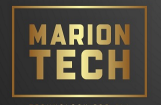The Hidden Costs of Over-Reliance on AI Tools for High School and College Students
Artificial intelligence (AI) tools have revolutionized how high school and college students learn, write, and solve problems. These tools promise efficiency, creativity, and access to vast resources at the click of a button. While the benefits are undeniable, the heavy reliance on AI tools can have unintended negative consequences, especially for young learners still developing critical skills and habits. Below, we explore the potential drawbacks of overusing AI tools in academic environments.
1. Erosion of Critical Thinking Skills
One of the primary goals of education is to cultivate critical thinking. However, when students rely too heavily on AI to solve problems, generate ideas, or complete assignments, they risk bypassing the mental processes that build these essential skills. Over time, this reliance may lead to a lack of confidence in their ability to analyze and solve problems independently.
Example: A high school math student uses an AI-powered app to solve equations and complete homework assignments without understanding the underlying concepts. During a test where the app isn’t allowed, the student struggles to apply basic problem-solving techniques, leading to poor performance.
2. Stunted Writing and Communication Development
Writing is a skill honed through practice, reflection, and revision. When students use AI tools to draft essays or complete written assignments, they may miss out on the iterative process that fosters better communication skills. Furthermore, the subtle nuances of tone, voice, and style that make writing unique could be lost when students depend on machine-generated content.
Example: A college freshman uses an AI text generator to write an essay for an English class. While the essay meets basic requirements, the professor notices that it lacks originality and depth, prompting a discussion about the importance of developing one’s own writing style.
3. Academic Integrity Concerns
AI tools can make it tempting for students to shortcut their work, leading to potential breaches of academic integrity. Plagiarism—whether intentional or not—becomes a significant risk when students submit AI-generated content as their own. This not only undermines the value of their education but could also have long-term repercussions for their academic and professional reputation.
4. Reduced Creativity and Originality
AI tools excel at mimicking patterns and generating text based on existing data. However, true creativity often involves thinking outside the box and synthesizing disparate ideas in novel ways. Students who lean too heavily on AI may become less adept at generating original ideas, potentially stifling innovation and personal expression.
5. Overdependence on Technology
While technological literacy is crucial in today’s world, overdependence on AI can lead to a lack of resilience when technology fails. Students accustomed to AI assistance may struggle in situations requiring manual problem-solving, such as in-class exams or real-world challenges that demand adaptability and quick thinking.
6. Privacy and Ethical Implications
Many AI tools collect user data to improve their services, which can pose privacy risks. Students may unknowingly expose personal information or intellectual property when using these platforms. Additionally, ethical dilemmas arise when AI-generated content is used inappropriately or without proper attribution.
7. Undermining Effort and Perseverance
Education isn’t just about acquiring knowledge; it’s also about learning discipline, effort, and perseverance. When AI tools make tasks too easy, students might miss the opportunity to develop grit and resilience—qualities that are vital for success in both academic and professional settings.
Striking a Balance
AI tools undoubtedly offer significant advantages, such as personalized learning, efficient research, and enhanced accessibility. However, students and educators must strike a balance to ensure that technology serves as a complement—not a replacement—for genuine learning experiences. Here are a few strategies to encourage responsible AI use:
By fostering awareness and encouraging balanced use, educators can help students leverage AI’s benefits without compromising their growth and development. After all, the goal of education is not just to complete tasks but to cultivate thoughtful, capable individuals ready to tackle the complexities of the world.
